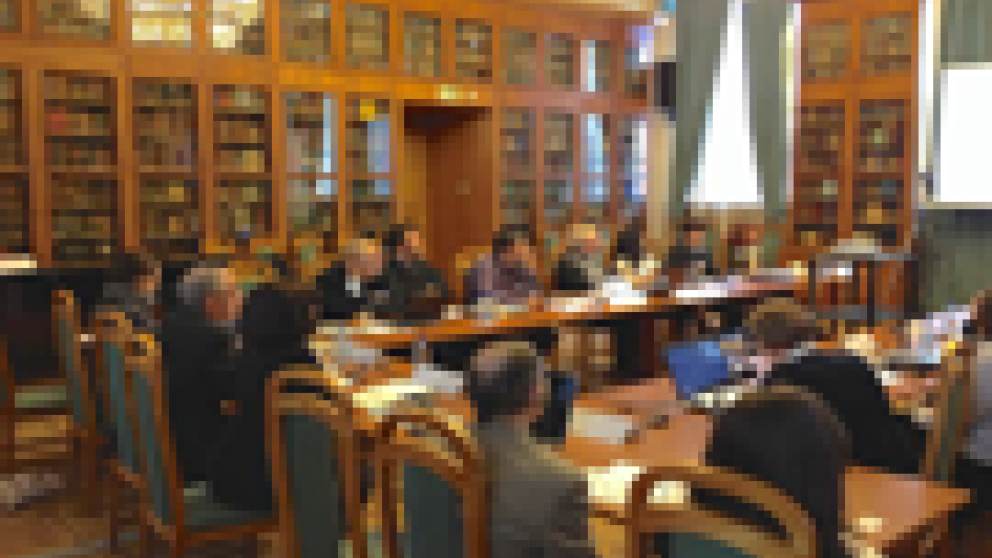Changes in the Russian Arctic and Global-Local Feedbacks: Second “Arctic Horizon 2030” Workshop
17.04.2014

Climate change is only one of many factors decisive for the future of resource extraction in the Russian Arctic and its social and ecological implications. During an Arctic Workshop in Moscow, stakeholders and researchers convened to better understand the challenges that decision-makers and communities face under changing political, economic, and ecological landscapes in Russia’s High North.
On April 9, 28 experts and stakeholders came together in Moscow to discuss transformations in Russia’s High North. This second event in the workshop series “Arctic Horizon 2030” involved partners from science, politics, and civil society and focused on the economic, social and ecological implications of oil and gas extraction activities in western regions of the Russian Arctic. Participants discussed the relationship between global energy markets and resource development in Russia, climatic and ecological changes in the Arctic and their implications, and the effects of resource extraction on local communities.
“Arctic Horizon 2030” is part of the IASS research on “Sustainable Modes of Arctic Resource-driven Transformations” (SMART) that brings together stakeholders and leading experts to identify sustainable transformation pathways for the Arctic region, focusing particularly on impacts of increasing resource extraction activities. The workshop in Moscow allowed for an exchange of perspectives amongst researchers and strengthened the relationship between the European and Russian research communities, as well as established the basis for trust and exchange with several stakeholders. The results will be used to identify research questions relevant to Russian Arctic stakeholders, develop scenarios for consideration of options and consequences by stakeholders at multiple levels, and as a basis for research collaborations between the IASS and Russian partner institutions.
The workshop was organized by the Institute for Advanced Sustainability Studies (IASS) and the Global Climate Forum (GCF) in cooperation with researchers from the Institute of World Economy and International Relations of the Russian Academy of Sciences (IMEMO RAN) and the Nansen International Environmental and Remote Sensing Centre (NIERSC). It was funded by the European-Russian Centre for co-operation in the Arctic and Sub-Arctic environmental and climate research (EuRuCAS).
The results of the workshop are summarized in a Workshop Report on the EuRuCAS Homepage, which can be found here (http://eurucas.niersc.spb.ru/files/Moscow-eurucas-workshop_report.pdf).